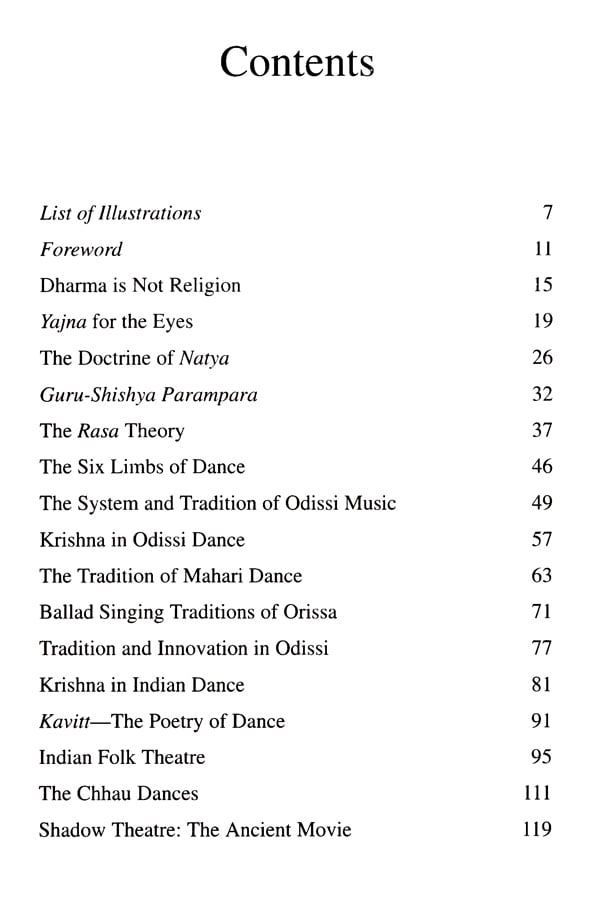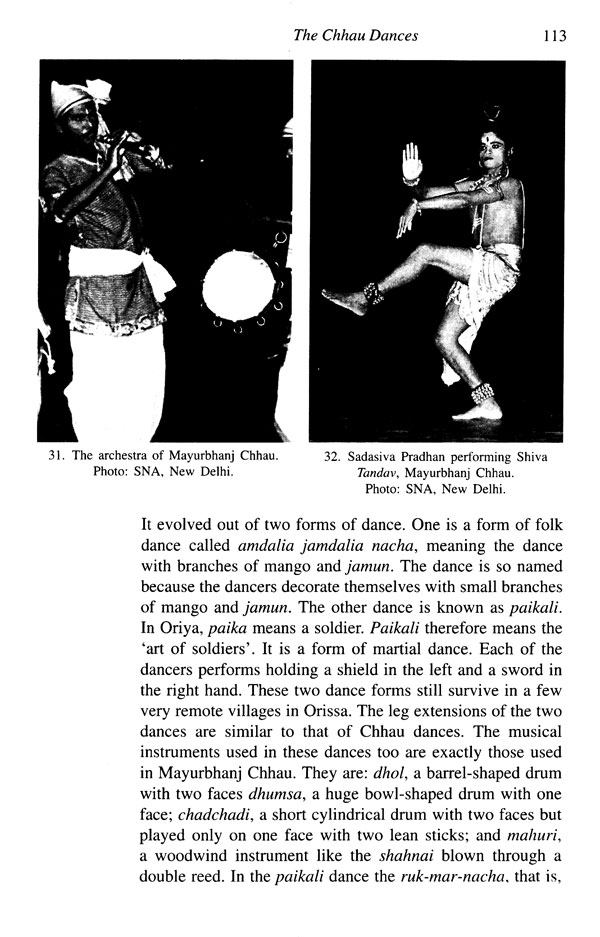
Back to The Roots (Essays on Performing Arts of India)
Book Specification
| Item Code: | NAZ782 |
| Author: | Jiwan Pani |
| Publisher: | Manohar Publishers and Distributors |
| Language: | English |
| Edition: | 2004 |
| ISBN: | 9788173045608 |
| Pages: | 126 (37 B/W Illustrations) |
| Cover: | HARDCOVER |
| Other Details | 9.80 X 7.50 inch |
| Weight | 540 gm |
Book Description
Jiwan Pani was born on 13 February 1933 in a Brahmin family from Baripada in the Mayurbhanj district of Orissa. From his early years he showed a keen interest in music, dance and theatre. His first poem was published when he was only fourteen years old. Later his lyrics began to be widely sung by the common man and were freely adopted by film makers. His film on the Ravanachhaya, the shadow puppet theatre of Orissa, and his video-films on the Mayurbhanj Chhau have all been widely acclaimed and are expressions of his master craftsmanship. There was no aspect of Indian art and aesthetics that he was not familiar with.
Back to the Roots is a collection of Jiwan Pani's articles which have been put together themewise. This book reflects his wide-ranging interests: the cult of Jagannatha, an individualistic and an in-depth study of the Geetagovinda, the Oriya systems of music as the third school along with Carnatic and Hindustani, his numerous scripts for dance-dramas, tele-serials and films, his deep study and understanding of Hindu and Buddhist systems of philosophy. These articles only go to prove that Jiwan Pani was a leading scholar of traditional Indian performing arts and Indian aesthetics.
This handsome volume with numerous photographs is a celebration of the true vidwan that Jiwan Pani was.
Jiwan Pani joined the Sangeet Natak Akademi in 1970. In December 1983 he was appointed the Director of the Kathak Kendra, New Delhi, and continued to hold the post until he retired in 1994. The Orissa Sangeet Natak Akademi conferred on him an award for his outstanding study of the performing arts of Orissa. His in-depth studies of Chhau and Odissi dance forms, and puppets and masks of India are truly pioneering works. In 1997 Jiwan Pani received the Sahitya Akademi Award for his Oriya translation of Federico Garcia Lorca's poems. One of the leading poets and lyricists in Oriya, he has published a collection of poems in Oriya, a monograph on the Ravanachhaya, another on the Purulia Chhau dance. His other publications include The World of Other Faces: The Masks of India; The Living Dolls: The Story of Indian Puppetry and Celebration of Life: Folk Dances of India.
THIS BOOK MIRRORS Jiwan Pani's multifaceted personality as a poet, lyricist, cultural commentator, research scholar, translator and an art administrator. Through his writings, he has strived to propagate and popularize Indian dance traditions. The essays in this anthology bring out his concern for the dance forms, their evolution and survival. His writings have persuasiveness and engaging quality, his language is visual and artistic that makes a reader committed. Throughout his career Jiwan Pani was after an inense pursuit to find out the kala mula shastra, roots of the performing art traditions.
Like the Sutradhara of a traditional play, he has woven the homogeneity of a tradition at the levels of loka and shastriya. For him the loka is a level of experience and shastriya is rootedness in textual erudition. He views facets of learning, vidya—like philosophy, linguistic, poetics dramaturgy and religion—as an alphabet to understand the Indian art traditions, be it dance, play, poetry or painting.Delhi provided a second home to Jiwan Pani who primarily belongs to Orissa and its cultural traditions which nourished him as a poet. The liberal artistic climate of princely Baripada gave him a cosmopolitan temper to look beyond for possibilities. Jiwan Pani is intensely sensitive to the fragrance of his soil, sunsets and moonlit nights, to the cloud-laden skies and dancing peacocks, to the surging waves and the deep mystic forests. These unique life experiences emerge as poetic images, similes and metaphors. Jiwan's poetic experiences are sung by millions and he is a romantic and pastoral reality to them. In the pages of this book you can hear his authoritative intimate voice making a definite statement.
Book’s Content and Sample Pages











